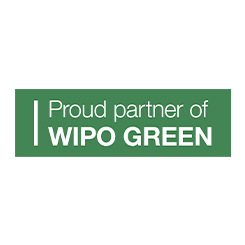Partnership
Technologies and patents related to social infrastructure
Standardization activities are essential to secure interoperability of products and services from different companies. Canon has long worked on the standardization of image formats, such as color and compression coding, and telecommunications technology related to fax, etc. Since the 1990s, Canon's product line has shifted to digital equipment such as digital cameras as well as digital copiers and multifunction printing devices. This has led to the development of digital processing of image data, the evolution of designs that makes the compatibility of the product itself with other devices, and the increasing importance of conforming to international standards. With this trend of digitalization, Canon has strengthened its activities for standards. For example, we actively participated in the standardization of the Exif/DCF file system for digital cameras and contributed to the spread of the standard technology, which has now been adopted in most digital cameras and smartphones around the world.
We also widely contribute to other international standards such as ITU, ISO, and IEC, and industry standards such as JEITA, JBMIA, and CIPA.
In this way, Canon has been involved in the standardization of technologies rooted in our business products. Today, however, business domains are expanding as various devices are connected, and barriers between industries have been disappearing. Infrastructure technology (standard technology) has become indispensable for the smooth progress of these developments. In addition, in some cases there are patents that are essential in the provision of standards-compliant products and services. Such patents are called standard-essential patents, and obtaining standard-essential patents and implementation patents around standards strengthens intellectual property competitiveness. Canon is currently participating in standardization activities for infrastructure technologies such as video coding (HEVC, VVC), wireless communications (Wi-Fi, IEEE 802.11, 5G), and wireless power transmission (Qi), with the aim of strengthening our intellectual property competitiveness related to standard technologies. We will continue to work on necessary standard technologies while looking ahead to the future of Canon's business.
Example: Standardization Activities and Acquisition of Essential Patents for Wi-Fi Standards
The Wi-Fi Alliance is an industry association working to standardize various technologies related to wireless local area networks (WLAN). Since joining the Wi-Fi Alliance, Canon has been working with other companies to develop the necessary specifications. In the process, we have invented various technologies and obtained patents.
In this way, proposing solutions to issues found during standardization will lead to the acquisition of essential patents. Canon is actively working to strengthen activities that contribute to standardization.

Licensing of Patents Related to Standards
If standard-essential patents are not licensed, the diffusion of standard technology cannot be expected. Each standards organization determines its own arrangements for the treatment of standard-essential patents, and establishes its own intellectual property rights policy (IPR policy). Canon licenses standard-essential patents in compliance with these policies, depending on the business circumstances.
One option is to make use of a patent pool*. Canon is currently participating as a licensor in patent pools for the HEVC video coding standard. As of April 2021, more than 550 of Canon's standard-essential patents have been approved as applicable patents in this patent pool. We are also considering the use of a patent pool for VVC, which is the successor to HEVC.
On the other hand, regarding standard-essential patents for technologies where there is no patent pool, or if Canon does not participate in the patent pool, we are willing to license them by other methods.
- * A system under which patents owned by multiple patentees are managed and operated by a single organization, and its members can obtain the necessary licenses.
Open Letter to Standard Setting Organization
Posted is an open letter to the Bluetooth SIG (Special Interest Group) requesting it address an unjustified assertion against Bluetooth standard.
Other Projects
-
Technologies and patents related to social infrastructure
Strengthening of international standards activities.
Read more

-
Tackling environmental issues through WIPO GREEN activities
In cooperation with WIPO (World Intellectual Property Organization), we contribute to the diffusion of green technology.
Read more

